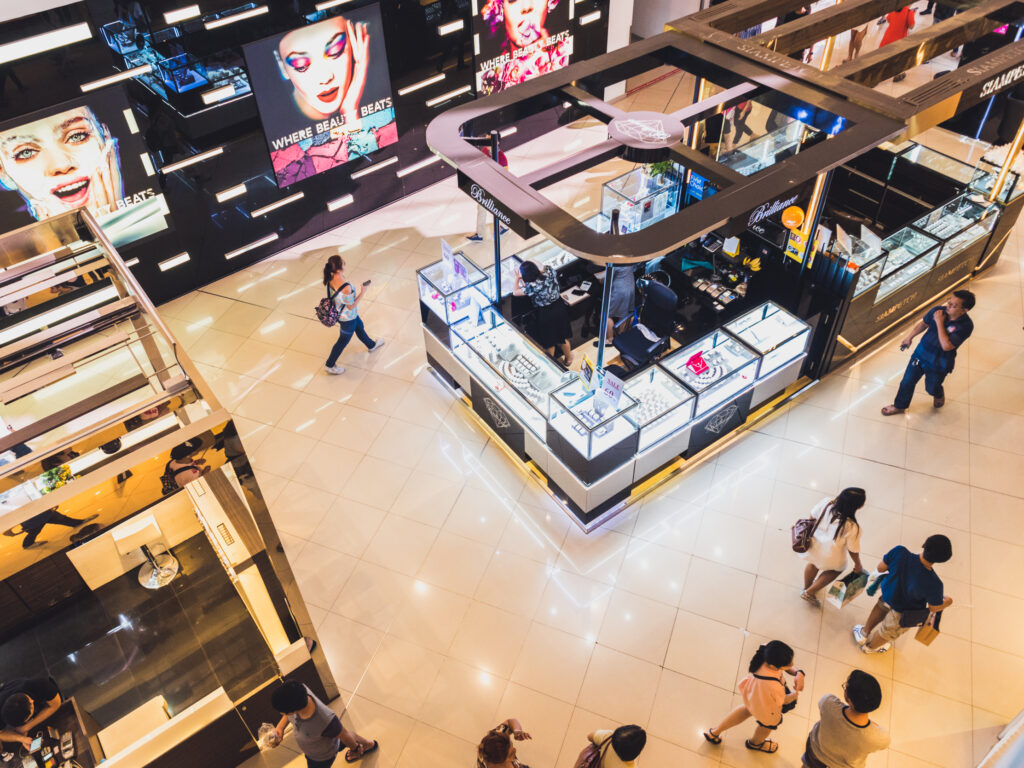
The Traditional Retail Environment
Historically, the retail sector has been marked by fierce competition and constant innovation, irrespective of geographical boundaries. Each day, new companies emerge, introducing innovative products and services designed to capture consumer attention and fulfil their evolving needs. This dynamic landscape features a blend of established giants and emerging players, each striving to maximize consumer satisfaction through strategic offerings.
In the pre-AI era, retail strategies were predominantly mass-targeted, requiring significant effort from retailers to identify and engage potential buyers. Traditional methods relied heavily on the retailer’s intuition and limited consumer insights, making it challenging to connect customers with new, potentially superior products. This was particularly difficult for new market entrants lacking the historical data or brand recognition of more established competitors. The absence of sophisticated tools to analyze consumer behavior in depth often left a gap between what was offered and what customers truly desired.
Transforming Retail: Utilization of AI in Conventional Practices
With the advent of digital transformation, the retail industry began to reshape dramatically. Retailers increasingly turned to advanced technologies, particularly artificial intelligence (AI), to enhance their understanding and engagement with consumers. AI has revolutionized traditional practices, especially in the domains of cross-selling and upselling. Through sophisticated algorithms, AI can assess consumer behavior to create linkages and recommend comparable or higher-end products, promoting extra purchases that consumers may not have considered before.
For retailers, AI-driven strategies mean enhanced revenue potential, increased Customer Lifetime Value (CLV), and a robust competitive edge. Consumers benefit from AI as it identifies and recommends products and services that precisely target their specific needs and preferences, enhancing their satisfaction and shopping efficiency. AI facilitates a more personalized shopping experience, reducing the time and effort consumers spend during the purchasing process. This shift not only optimizes business operations but also redefines the consumer journey, making it more aligned with individual preferences and less reliant on broad, impersonal marketing tactics.
By integrating AI into their operations, retailers are crafting highly personalized engagements that resonate with individual consumer needs, driving satisfaction and sales. Furthermore, AI is transforming backend processes, including supply chain and inventory management, to ensure that these personalized experiences are supported by a responsive and efficient operational framework. This dual approach allows retailers to meet dynamic market demands with agility, ensuring a more efficient retail ecosystem.
Personalized Customer Experiences in AI-Driven Retail
The advent of e-commerce transformed the retail landscape by offering consumers an unprecedented variety of products accessible from a single digital platform. However, this vast array of choices can sometimes overwhelm consumers, making it challenging for them to identify the products that best meet their needs. In response, online retailers have increasingly turned to artificial intelligence (AI) to refine and personalize the shopping experience.
AI-powered algorithms analyze consumers’ browsing and purchase histories to deliver targeted recommendations, significantly enhancing user engagement and satisfaction. Platforms like Amazon exemplify this approach with features such as “recommended for you” and “frequently bought together,” which not only guide consumers to products they are more likely to purchase but also encourage continued interaction with the site. These personalized suggestions are effective in retaining consumer interest; for instance, Amazon’s bounce rate stands at approximately 35%, notably lower than competitors like Walmart and Target, which report bounce rates of 50% and 45%, respectively. This indicates that Amazon’s AI-driven recommendations not only boost sales but also enhance consumer engagement, leading to higher overall order values.
Further advancing AI’s role in personalized retail experiences, Graph Neural Networks (GNNs) are employed to discern complex relationships between products, thereby promoting co-purchasing and discovering alternative products. GNNs operate on data from various consumer interactions, categorizing relationships into types such as co-purchase (customers who bought product X also bought Y), co-view (customers who viewed X also viewed Y), and purchase-after-view (customers who viewed X and later purchased Y). These insights help platforms like Uber Eats deliver highly relevant food and restaurant recommendations, enhancing customer satisfaction by aligning offerings more closely with individual preferences and previous behaviors.
By leveraging sophisticated AI techniques, retailers not only streamline the shopping experience but also craft highly personalized interactions that resonate with individual consumer needs, driving both satisfaction and sales.
Smart Inventory and Supply Chain Optimization with AI
The integration of AI-driven recommendations into retail operations is intrinsically linked to the effectiveness of inventory management. As AI algorithms suggest new products to customers, it is imperative that these recommendations are backed by a responsive supply chain. This ensures that the inventory levels align with the generated demand, maintaining customer trust and satisfaction by having the right products available in the right quantities.
Levi’s, a leader in the retail sector, has pioneered an advanced AI-based solution called ‘BOOST’ (Business Optimization of Shipping and Transport). This system enhances e-commerce logistics by not only meeting customer demand more efficiently but also optimizing stock levels across different locations. When a product is unavailable at a distribution center, BOOST’s algorithms can check and retrieve inventory from the nearest stores, effectively turning every retail location into a potential fulfillment center. This approach not only broadens access to products but also minimizes delivery times and costs.
Moreover, BOOST leverages AI to refine operational efficiency by intelligently managing shipment consolidations. For instance, if a customer’s order results in multiple separate deliveries, BOOST algorithms work to minimize these instances, thereby reducing shipping costs and environmental impact, and improving the overall customer experience. This strategic application of AI in supply chain management not only supports Levi’s commitment to customer satisfaction but also drives significant improvements in operational agility and cost efficiency.
The AI Debate: Navigating the Benefits and Challenges in Retail
The incorporation of AI in retail is not without its detractors, who cite concerns over the use and security of consumer data to generate AI insights. As issues around data privacy escalate, consumers are demanding greater transparency from retailers about how their information is collected and utilized. This growing skepticism can lead to consumers providing less accurate information, thereby diminishing the quality of data available for AI models and potentially degrading the effectiveness of recommendation algorithms
On the operational front, one of the significant challenges for retailers is the ability to deliver consistently accurate recommendations amidst the vast and varied data they collect. Failing to achieve this accuracy can cause retailers to lose their competitive edge.
Despite these challenges, proponents of AI in retail advocate for the benefits it brings, arguing that with adequate education about AI systems and the enforcement of stringent regulations and safety measures, the risks can be managed effectively. They contend that, under proper oversight, AI can substantially enhance business operations by increasing revenue, optimizing supply chains, and refining marketing strategies, all while offering consumers a more personalized shopping experience. These advocates emphasize that the strategic application of AI, coupled with robust privacy protections and transparency, can transform the retail landscape, providing substantial benefits to both businesses and their customers.
Future Horizons: AI’s Expanding Role in Retail
According to a report by ‘Research and Markets’, the trajectory of AI in retail is promising and the global market for AI applications in recommendation systems is projected to reach USD 3.28 billion by 2028. The evolution of this technology is expected to be characterized by a stronger focus on personalization strategies, enhancements in real-time recommendation capabilities, and the development of adaptive learning models. These advancements will be supported by improved feedback mechanisms and sophisticated social influence analysis, which are set to refine how consumers interact with brands and make purchasing decisions.
As AI technologies continue to permeate the retail sector, they are fundamentally altering consumer engagement across various platforms. The shift towards more personalized user experiences is becoming more pronounced, and the growing adoption of AI tools indicates a sustained trend towards more intelligent, responsive retail environments. This ongoing integration suggests that AI is not just a temporary phase but a pivotal element in the future landscape of global retail, poised to deliver lasting changes to how products and services are marketed and consumed.
References:
- Research and Markets (2024)
- Leafio (2023)
- NewStore (2023)
- Amazon (2022)
- Levi Strauss and Co (2022)
- Anica-Popa, Ionuț; Popa-Anica, Liana; Rădulescu, Cristina; Vrîncianu, Marinela (2021)
- Modern Distribution Management (2020)
- Amazon (2020)
- Uber (2019)



